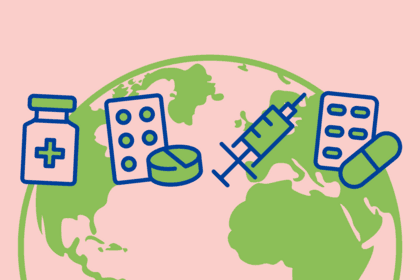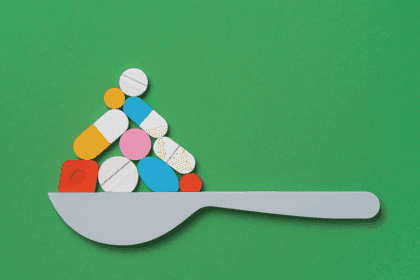
We're backing the AMR Action Fund – this is what it means for antibiotic innovation
Wellcome joins a new collaboration of private and philanthropic partners in the search for new antibiotics to treat drug-resistant infections. Tim Jinks explains why this is important and why the next move needs to come from governments.

Nina Dunn/Financial Times
Medical innovation moved at an astonishing pace in 2020 as promising Covid-19 tests, treatments and vaccines were rapidly advanced through the research pipeline. In just 11 months, we witnessed the first approved Covid-19 vaccines start to reach people.
This rapid innovation – built on decades of research – was fuelled by significant collaboration and extraordinary levels of government, philanthropic and private sector support. This gives me hope for the antibiotic pipeline, where we face a dangerous legacy of a field of research and development (R&D) which has been nearly abandoned since the 1980s.
The AMR Action Fund
Despite the importance of antibiotics to modern medicine, a novel antibiotic treating gram-negative infections – which are usually resistant to multiple drugs – has not made it to patients in over three decades. The stalled pace of progress in the antibiotic pipeline is due to a myriad of factors, particularly a moribund market for new drugs. But as Covid-19 has shown us, with significant collaboration and extraordinary levels of government, philanthropic and private sector support, we can achieve incredible things.
To this end, Wellcome has been collaborating with the private sector and philanthropic partners to develop the AMR Action Fund. This is a nearly $1 billion pharmaceutical industry-led fund which launched last summer.
It aims to bridge the funding gaps and technical barriers that antibiotic developers face as they head into later-stage development and ensure new treatments for drug-resistant infections are available for the patients who need them the most. It aims to bring two to four new antibiotics to market in the next 15 years and is being funded by 23 major global pharmaceutical companies.
Wellcome has now made a £50 million contribution to the AMR Action Fund, to help provide a lifeline for biotech companies trying to progress promising antibiotics through the complex and expensive later stages of clinical trials and approvals.
How to fix the pipeline of new antibiotics
Through this new fund, the pharmaceutical industry and non-industry partners like the European Investment Bank, the Boehringer Ingelheim Foundation and Wellcome are working together to fix the pipeline of new antibiotics.
While this collaboration is a crucial step forward, on its own, it can only buy us time. We still need extraordinary levels of government support to put in place additional, long-term market solutions such as incentives and reimbursement reforms.
That’s because the current economic model for developing new antibiotics is failing. Companies need to invest huge amounts of money to bring a new antibiotic to market but with likely sales volumes and prices extremely low, they will struggle to recover their costs or make a profit. In the face of these financial risks, most large pharmaceutical companies have left the field and smaller companies like Achaogen and Melinta Therapeutics have gone bankrupt.
Wellcome has invested heavily in reinvigorating the broken antibiotic pipeline, as part of our long-standing commitment to make sure that nobody is endangered by drug-resistant infections.
In 2016, we invested £125 million in CARB-X, a public-private partnership that aims to fill the dearth of investment in early-stage antibacterial research and development. With the world’s largest and most diverse antibacterial portfolio, CARB-X has since funded 75 projects in eight countries.
But it is harder for public and philanthropic funders to subsidise more expensive, later-stage development in the same way. And private investors, deterred by the poor revenues from the antibiotic market, are shying away from investing in these projects on commercial terms.
This means we have a valley of death where antibiotic developers can’t find funding to support the later stages of product development and so early innovations like those funded by CARB-X are abandoned or lost.
Lasting solutions
The AMR Action Fund is a step forward in addressing this challenge. The Fund has been established with a mandate to maintain a clear and significant public health focus, including by taking steps to support equitable access and responsible stewardship of new antibiotics. This is crucial for global health and preventing escalating infectious diseases for years to come.
We are looking forward to continuing our collaboration with our partners in the Fund in the search for novel antibiotics against drug-resistant infections.
However, the significant collaboration and extraordinary levels of philanthropic and private sector support represented by the Fund won’t by themselves solve the problem of the struggling antibiotics R&D. Lasting solutions that will deliver sustained antibiotic innovation over the longer term can only be achieved by governments matching this bold, ambitious approach and putting in place long-term market solutions that can complement the fund.
The AMR Action Fund is buying time for the antibiotic pipeline. It is now up to governments to use this time wisely.

